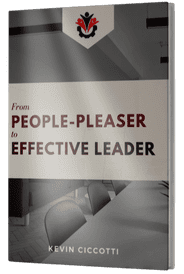|
“It takes a little bit of mindfulness and a little bit of attention to others to be a good listener, which helps cultivate emotional nurturing and engagement.” – Deepak Chopra
Many people engage in daily mindfulness practices such as meditation, yoga, or prayer. I first became aware of the impact of mindfulness and meditation when I embarked on my own journey of personal development many years ago. And, over the years I have become more and more convinced that mindfulness is an indispensable addition to my own personal and professional leadership. When I engage in a daily practice of meditation, I find myself to be more peaceful, creative, emotionally centered, and able to handle difficult situations that may otherwise cause me to collapse into old patterns of anger, sadness, or isolation. But why is that? One of the most important validations of the practice of meditation that I found is from a study conducted through Harvard University and Massachusetts General Hospital.1 The study involved 16 subjects, and took a total of 8 weeks. Each participant was asked to meditate for a minimum of 30 minutes a day. (Participants later reported spending an average of 27 minutes per day in meditation.) They each had MRI’s done at the beginning and end of the study, and what scientists found was remarkable. After only 8 weeks (56 days) they found that every one of the subjects showed a marked increase in the size of their hippocampus, which is the part of the brain responsible for learning and memory. That alone should be a compelling reason for us to at least invest some time in daily meditation. But there’s more! To add even more value to the practice, each participant showed a marked decrease in the size of their amygdale, which is the part of the brain responsible for fear, anxiety, stress, and anger. These people had literally changed the shape and structure of their brains through meditation! Not bad for a 30 minute a day investment! “Mindful meditation has been discovered to foster the ability to inhibit those very quick emotional impulses.” – Daniel Goleman Every year I teach many workshops on leadership to Project Managers (The Human Factor in Project Management) – at companies that contract with me, at the University of Nevada, Reno, and through multiple PMI Chapters at Professional Development Conferences. And each time I do, I have the pleasure of introducing many of them to one of the most important leadership tools I’ve discovered; one that has had immeasurable impact on my own life and leadership. Certainly most – if not all of us – have heard the term “mindfulness,” and some may even seek to incorporate the concept in our lives. For the sake of clarity, here is how I define mindfulness: being aware of our own inner experience (attuned to self), and paying attention to what is happening around us (attuned to others and the world around us). Mindfulness, Hope and Compassion Lead to Resilience When leaders practice mindfulness, hope, and compassion – especially with themselves – they increase their capacity for resilience. Resilience is that quality that allows some people to be knocked down by life and come back stronger than ever. “Mindfulness has helped me succeed in almost every dimension of my life. By stopping regularly to look inward and become aware of my mental state, I stay connected to the source of my actions and thoughts and can guide them with considerably more intention.” – Dustin Moskovitz Rather than letting failure overcome them and drain their resolve, they find a way to rise from the ashes. Psychologists have identified some of the factors that make someone resilient, among them a positive attitude, optimism, the ability to regulate emotions, and the ability to see failure as a form of helpful feedback. Even after a misfortune, resilient people are blessed with such an outlook and they are able to change course and soldier on. And it’s a critical quality for any leader to have. My Leadership Challenge to You Still not convinced? Then here’s my challenge to you – prove it to yourself! Make a commitment to spend at least 30 minutes a day in meditation for the next 8 weeks. Document the impact. How does conflict, fear, and stress impact you? Become more aware of your ability to respond effectively in your life and work. Pay attention. What do you notice? Let me know how it works. Tweet me at @Coach_KevinC or connect with me on Facebook. I know, you’re busy! Hey, we can all say that. I once read a wonderful Zen proverb about meditation: “You should sit in meditation for twenty minutes every day — unless you’re too busy. Then you should sit for an hour.” 1 http://news.harvard.edu/gazette/story/2011/01/eight-weeks-to-a-better-brain/ |
Quit being an average leader! Take the FREE Leadership Assessment.Kevin Ciccotti, Human Factor FormulaHelping companies create sustainable, effective teams that are committed to the success of their projects, the organization, and the individuals with whom they work |
Human Factor Formula, Inc.P.O. Box 17314
Reno, NV 89511 Connect with Kevin |
|
© 2014-2019 Human Factor Formula Inc. | Photography by Siddiqi Ray


 RSS Feed
RSS Feed



